The Sadness of Stranding
Yesterday, 4 October 2013, Oceans Research and Africa Media received a call from Craig Viljoen who runs the Cetacean Stranding Unit in the Mossel Bay area. Craig asked us for assistance with a mother and calf pygmy sperm whale found washed up on third beach Dana Bay (about 15 minutes South of Mossel Bay).
The pygmy sperm whale (Kogia breviceps) is a really small toothed whale. They are not often sighted at sea, and most of what is known about them comes from the examination of stranded specimens. Their conservation status is unknown as they are so seldom seen and there is very little research on them. Stranded animals have been found with plastic bags in their stomachs. Today further tests will be performed and I have requested that the stomachs be checked for plastics. If my hunch is correct and they have plastic in their stomachs then the devastation we already feel will be exacerbated, as it seems such a ridiculous- and certainly an avoidable- reason for them to die.
Here’s how it played out: As we arrived at third beach and ran down the dune we could see the tiny whales animals lying on the beach trying to breathe through their small blowholes- but struggling. On seeing this, the teams of interns dropped everything they had and after receiving a briefing from Craig immediately got into the breaking waves- mostly fully clothed- thus putting their own lives at risk to save the two struggling animals. the interns followed a co-ordinated approach in which they tried to bring the mother and baby together; helping to support them to hold their blowholes above the waves so that they could keep breathing; talk calmly to them to calm them down and also to hold them facing into the waves to try and get them to go out together as this would be the only way to get both of them out to sea successfully. There were huge rolling waves and it wasn’t always possible to keep or launch them together due to turbulence. The baby really struggled to get out at the back line and always seemed to turn broadside to the waves and roll back in. Then the mother – tried to come back in to be with her calf and ended up getting stranded again. This happened two or three times The mother whale was 3 meters long and her weaned male calf was 2.5 m long. It is easy to see how small these whales are from these photos where you can compare them with the size of the people.
The interns swam the whales out with each other at least three times and each time; just as we all thought we had been successful; the whales came back in to the beach. I spoke to the Oceans Research Cetacean expert, Monica Betts- who told me that there could be hundreds of reasons for the stranding. Monica took samples from both animals and we measured them and all this will be sent off for testing and perhaps some clue as to why this happened.
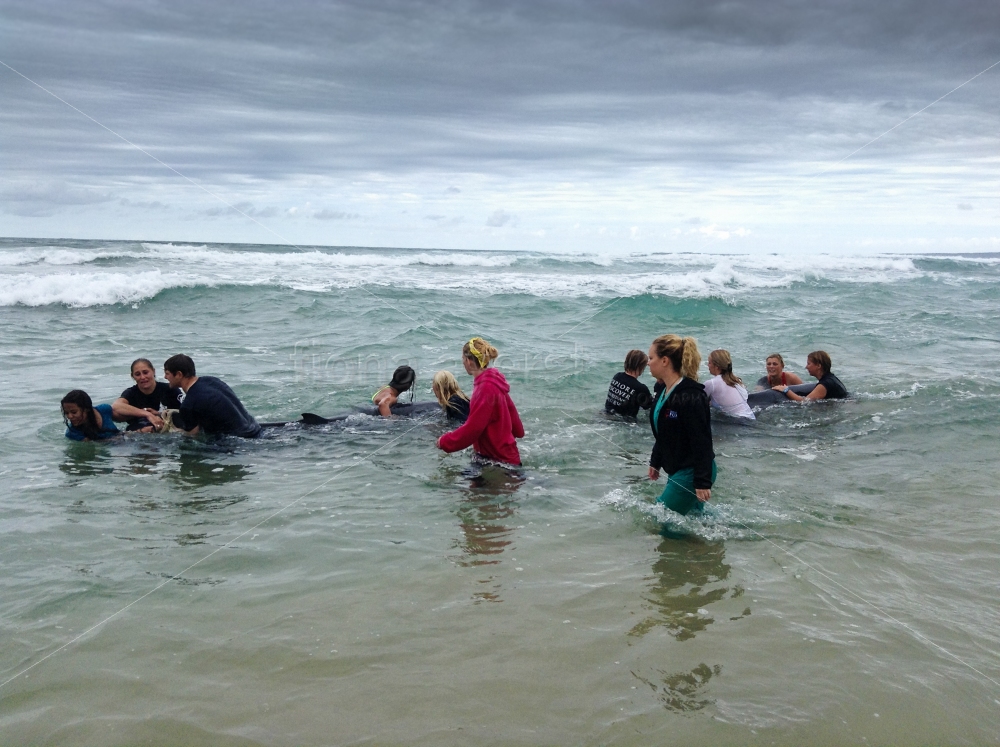
the fully clothed interns swam out the mother and son whale over and over but the surf conditions weren’t favourable

the interns tried everything they could and swam the whales out together twice but also individually around six times
We persisted with the rescue operation for hours but each time the whales landed up on the beach again they were more bruised and bloody that the time before. Monica told me that they have an extremely sensitive skin and can easily get cut and bruised from rolling in the surf. The female started to push out a lot of blood and it seemed that she was hurt in some way.
At times it was really difficult for me to not put my cameras down but I knew the scene had to be documented so that people can see the effects of polluting our oceans. Honestly, sometimes I am thankful I have a camera as it feels to me I am removed from a situation via my lenses – glass and plastic protection.
After repeated efforts to save the whales fell short, the public was asked to leave the scene and the animals were euthanized – l have asked if a necropsy — an animal autopsy — will take place to determine the cause of death but as have yet to hear what will happen. If seems that a necropsy should be performed to try and determine the cause of death; amongst other things. So little is known about pygmy sperm whales it seems crazy not to utilise their bodies to increase our knowledge of them.
We had a long time to try and calm down the tiny mammals and be with them on the beach – while we waited for the emergency services to come. Many interns laid hands of the whales, which seemed to soothe them and we laid wet shirts over them. I looked into the baby’s eye and was startled to see that it is the same colour as the sea- a stunning cerulean blue. Their faces resemble hippos rather than whales and they are surprisingly mammalian –I felt intimacy and similarity comparing their faces with ours. What the Oceans research and Africa Media interns experienced yesterday was extremely emotional and ultimately gut-wrenching and I think it is going to take many of us a long time to get over the awful feeling of helplessness and loss at the death of these two gorgeous whales.
He is going to kill me for this late insert but I would also like to specially acknowledge my husband Ryan Johnson who had major knee surgery two weeks ago- for what he did- wading through the huge rolling waves and trying to guide the whales out and for all his work in managing the process- both the whales and the interns could not have been in better(or gentler) hands…
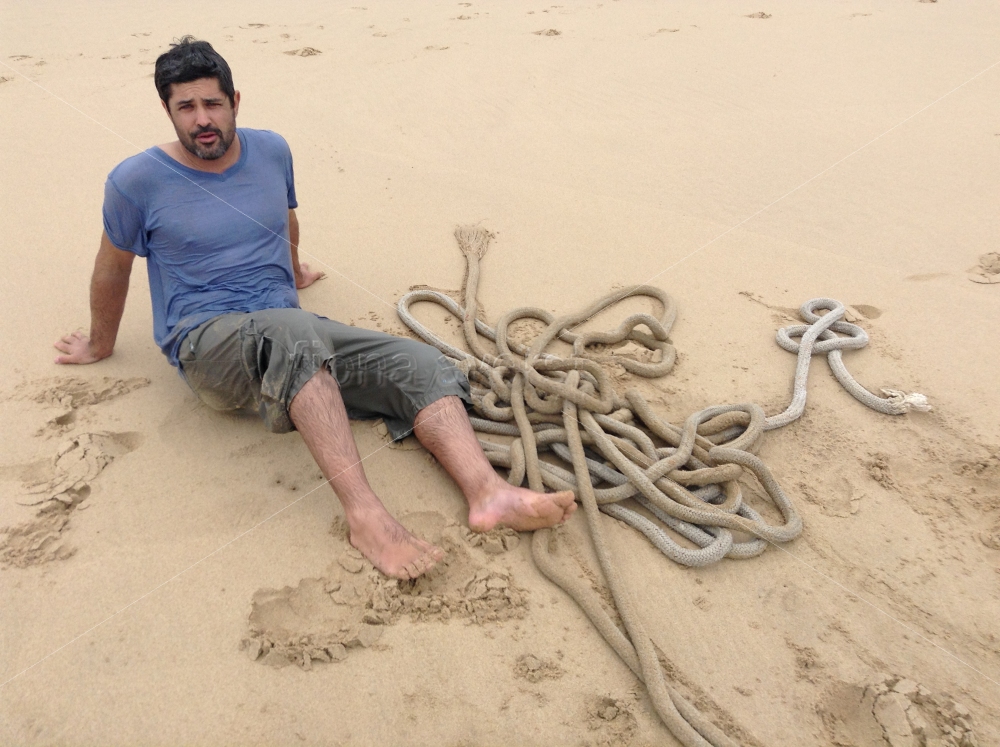
Ryan had knee surgery two weeks ago but was out there fighting to get the whales out to sea… ” can’t keep a good man down” !!
A further special mention to field specialist Braham Smit – who risked his safety to save one of his colleagues who – caring so much- had gone himself into a bit of “deep water” ! Nice team work.
It is time to act: even if you didn’t throw the rubbish down- if you see plastics or any form of pollution on your coastline or even in the streets- please either report if to the local authorities or, if you can do it safely- pick it up yourself. You will be saving the lives of many animals; like the two tiny whales we had to say goodbye to on a deserted beach yesterday afternoon.
Fiona Ayerst
5 October 2013
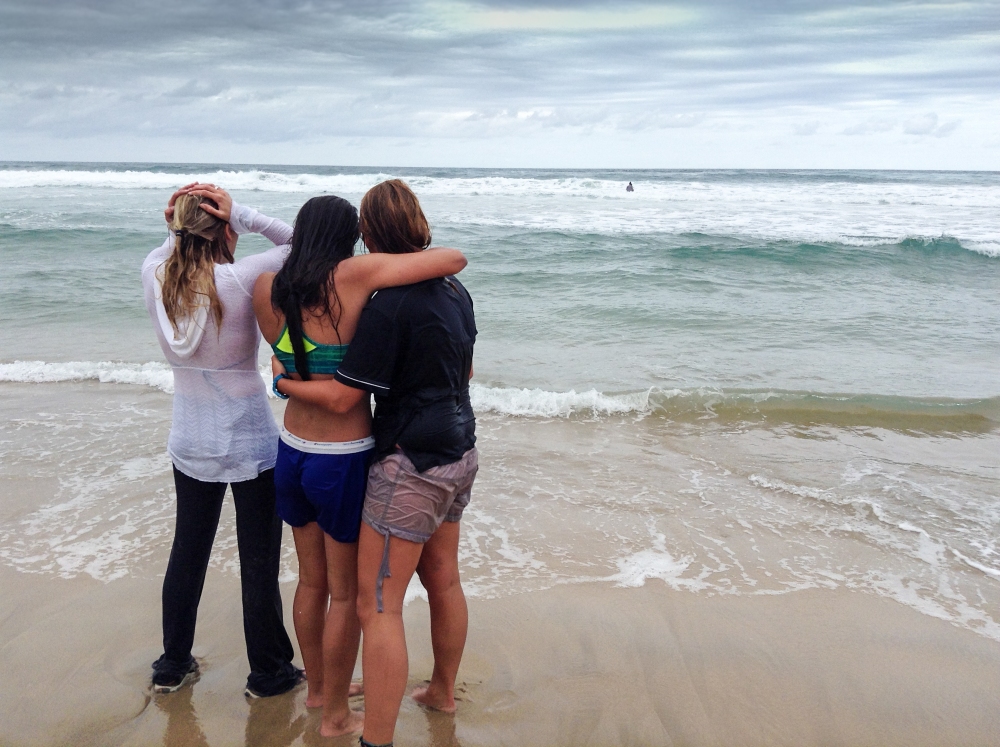
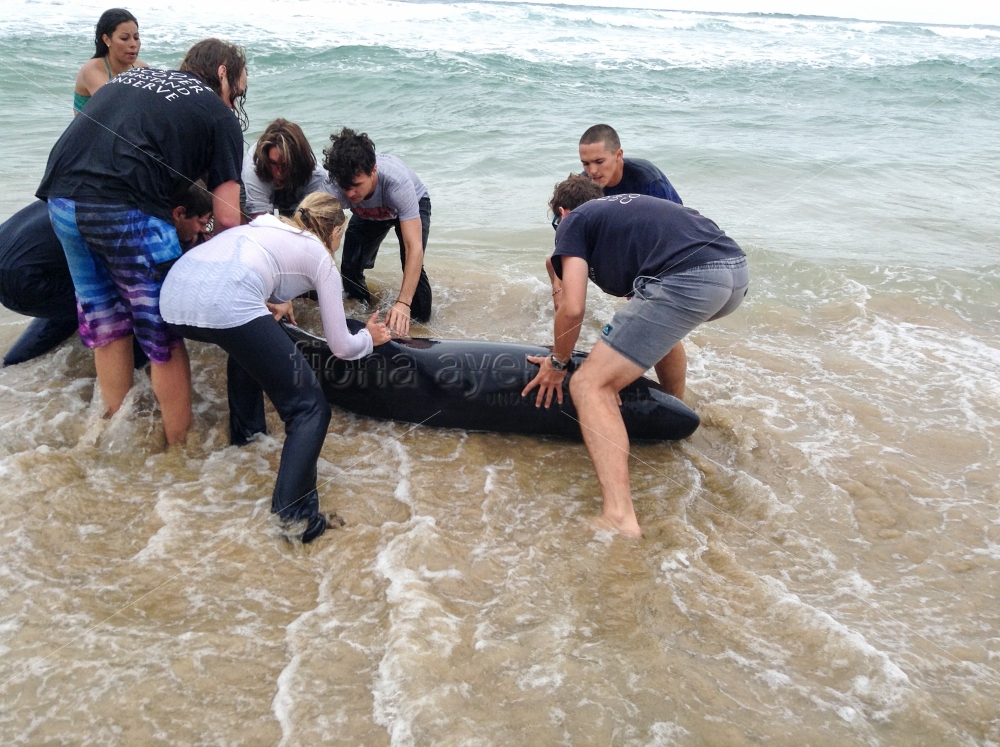















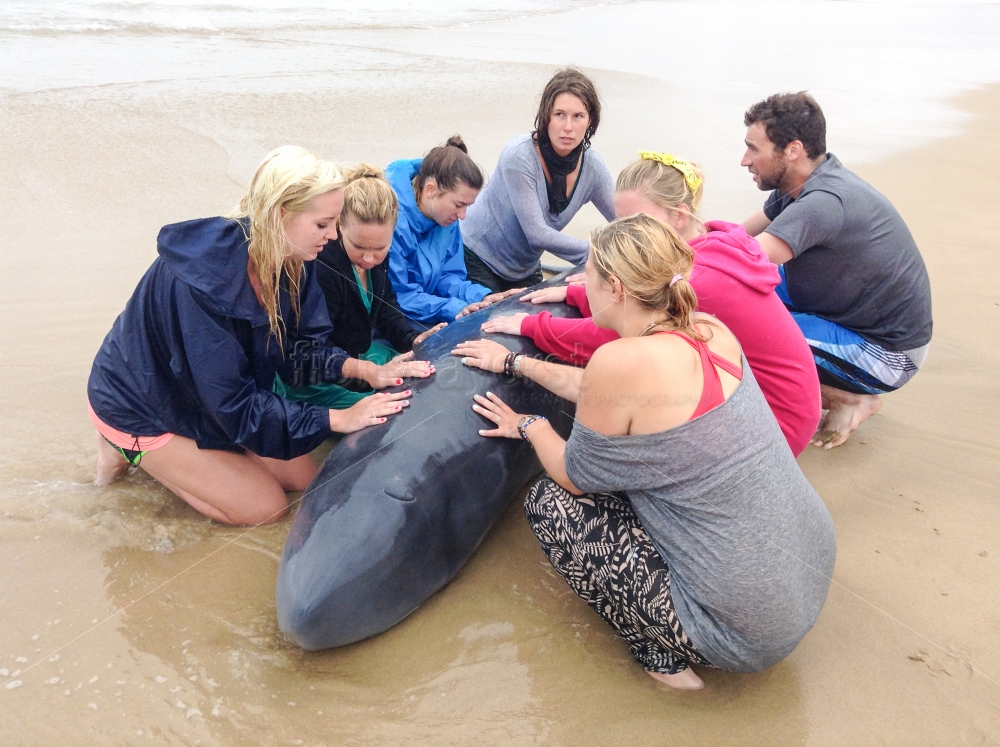
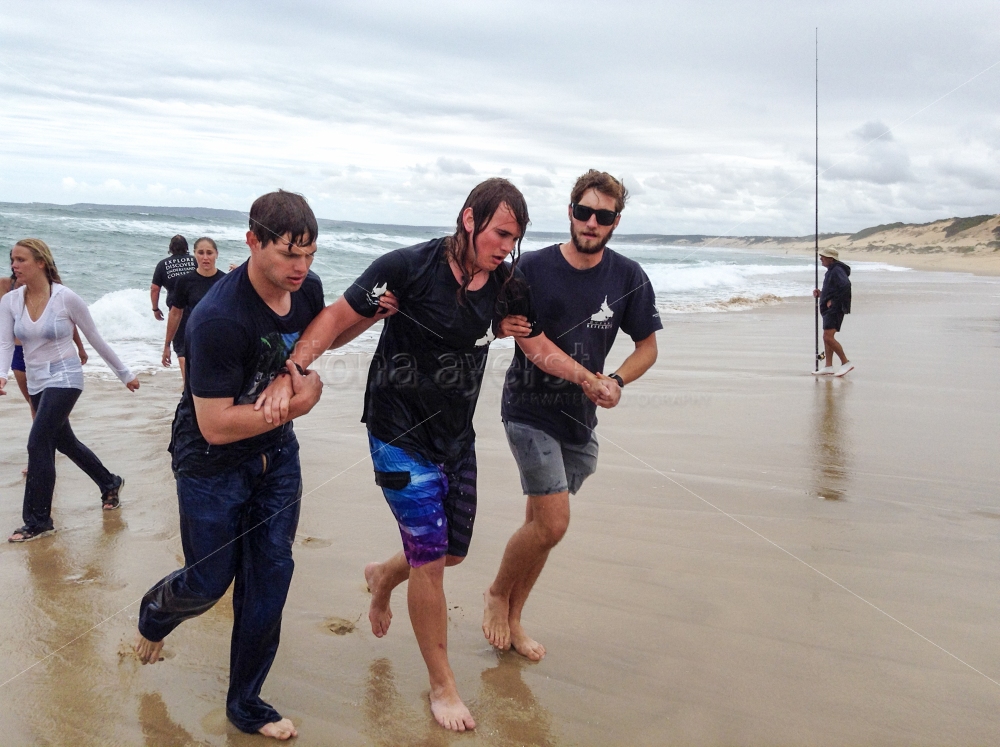
Thank you so much for this article Fiona!
I will be joining Oceans in November of this year and reading this just made me proud to be part of a caring group of people.
I work in whale and dolphin conservation, part of my life evolves around it, so I do know the heartbreak it can bring.
Great effort of all of you!!!!! Thank you!